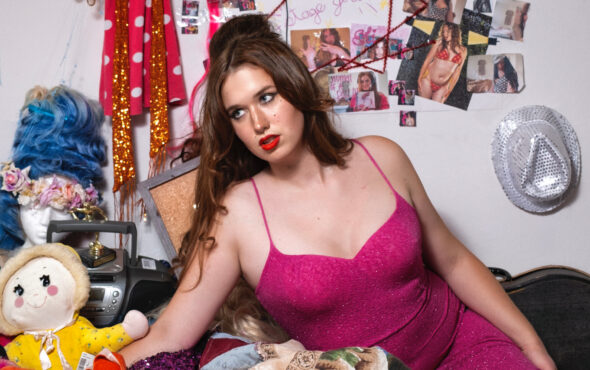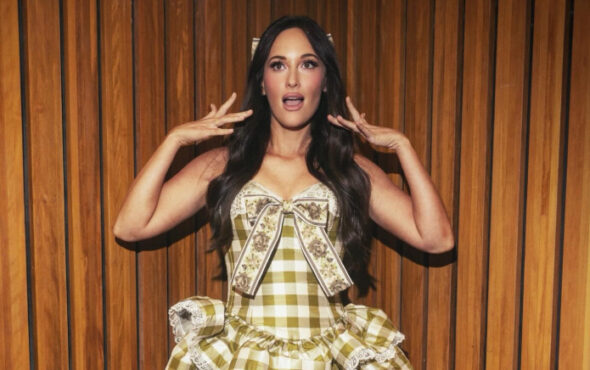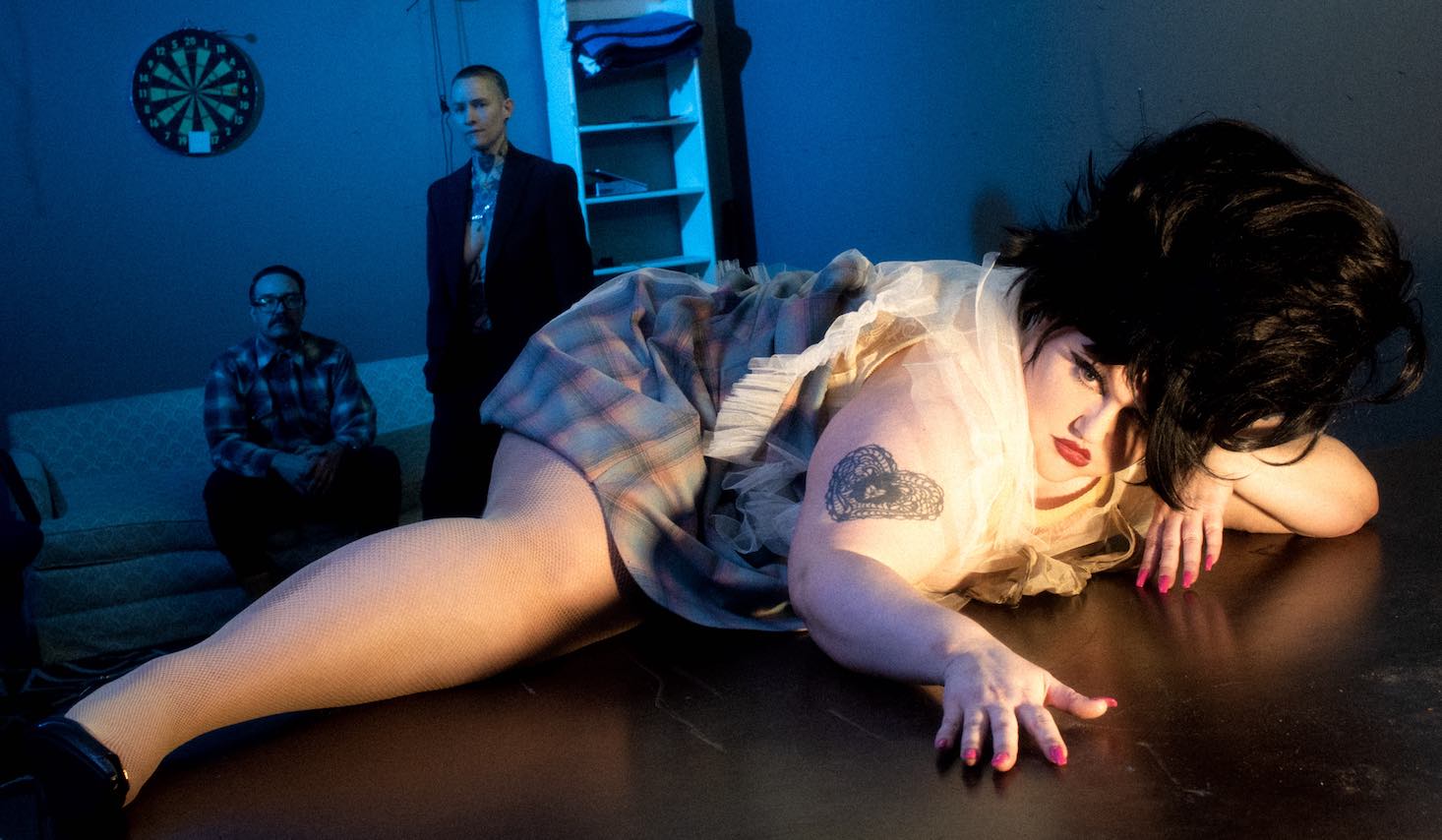
We all like a bit of gossip, but nobody quite enjoys a heartfelt conversation like Beth Ditto. “If you ever need anything, you let me know!” she quips over the phone, holed up on a tour bus in Germany.
It’s been quite a comeback summer for the dance-punk trio Gossip (vocalist Beth Ditto, instrumentalist Nathan Howdeshell and drummer Hannah Blilie). Following the release of their new album, Real Power, the Arkansas band have been making the most of their reunion, zipping around Europe and the UK on non-stop tour dates. After all, a 12-year hiatus will leave you feeling more than spirited to be back on the stage.
While it’s been over a decade, the band’s signature style of causing a ruckus is still, truly, intact. Real Power lives entirely by its title – it’s a heavy hitter. Ditto’s gutsy vocals punch away at heavy topics: divorce, death, isolation and friendship. Yet, while Ditto charges head-on at them, rebellious and armed with something to say. Sure you’re thwacked by a bubbly mesh of disco tunes, dance-floor pop and some classic punk influences. But, ultimately, it’s heart and well-meaning lessons that greet you at the core of this record.
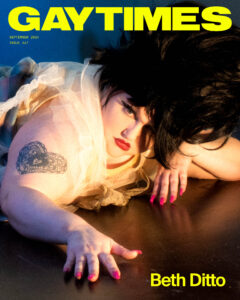
Real Power emulates a familiar feeling to ‘Standing In The Way of Control’ – the band’s urgent, iconic single penned in response to a proposed US Federal Marriage Amendment which would have outlawed same-sex marriage. This latest album surfaced in light of Black Lives Matter protests occurring near Ditto’s home in Portland. The political stirrings fed into a solo project that was already on the go. Ditto had enlisted the help of industry mogul Rick Rubin, before calling upon her Gossip bandmates for support.
Now, with Real Power out and the band hitting the road, GAY TIMES caught up with Ditto
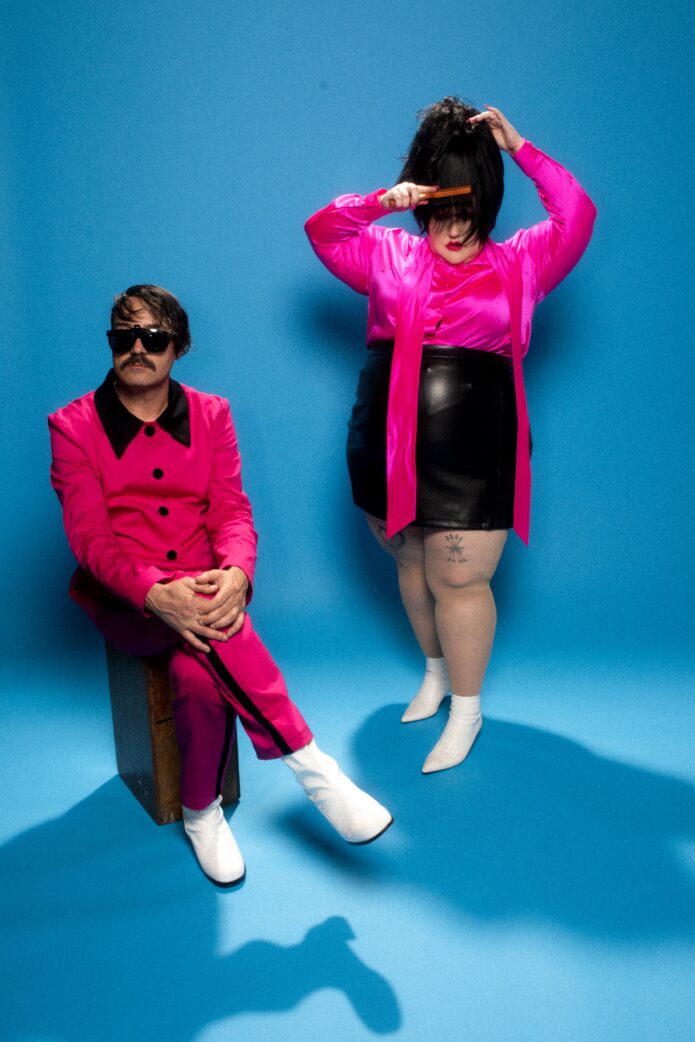
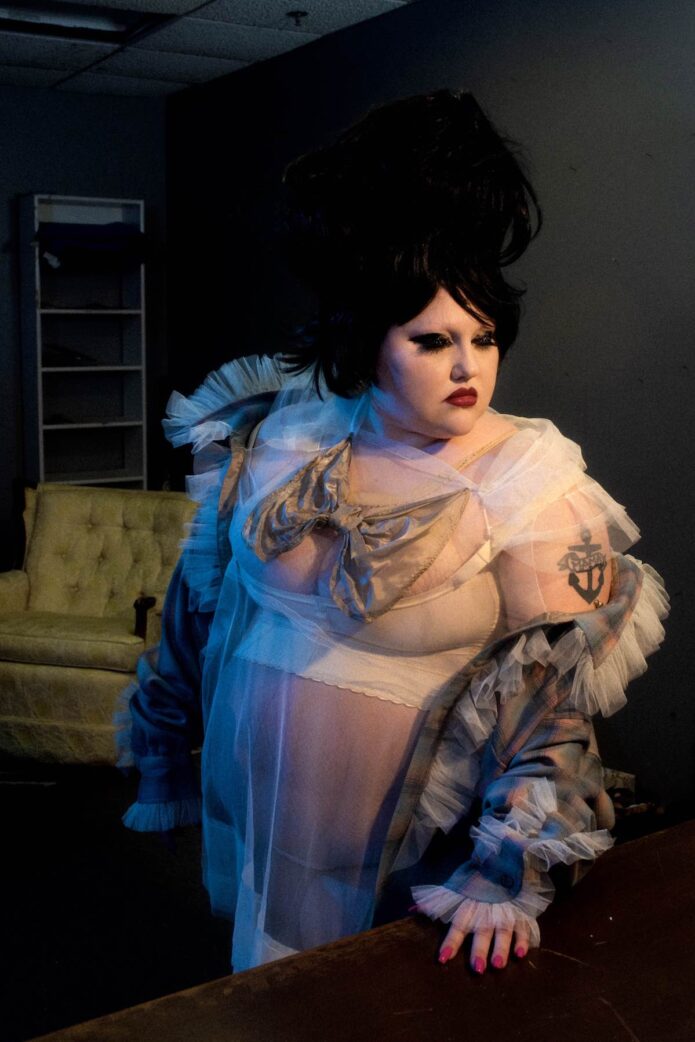
Hi Beth! Congrats on the new album and the non-stop summer tour. How have things been going lately?
You know, the older I get, the more space I need. Now, I sleep all day until it’s time to do my makeup and then I’m awake all night. That never makes sense because you never know what time you’re gonna be playing festivals. It’s a lot to get your body acclimated. I’m usually trying to find places in the day to just be quiet.
You’ve slipped back into a touring routine and have a packed schedule. What’s one life lesson you’ve learned along the way?
I’ve known Nathan [Howdeshell] for so long and we’ve all gone through really crazy changes, traumas, and a lot of joy. We’re the same as when we were kids and when we play music together. As far as music goes, you’re not doing surgery. We both really like mistakes, we like when things fall apart and get put back together. At a certain age, you really learn who your core friends are and who you can trust.
Your new album Real Power is a vibrant, subversive dance-punk project. It’s arrived at a time when LGBTQIA+ identities are continually being persecuted in the US. The album feels like a reminder of what we can do, as a community, when we reunite and realign. Would you agree?
No matter what what community you come from, you share the same traumas, timelines, language and experience. It’s not always going to be tit for tat but it gives you empathy into what someone else is going through. My assistant was talking one day about why some people don’t have empathy, how it’s because they don’t have imagination. In order to have empathy, you have to know what it’s like to put yourself in someone else’s shoes. I think that’s really true.
Music is so pertinent to social progress especially when we consider how it can drive activism or empower subcultures. So, I have to ask about a classic – ‘Standing In The Way of Control’, which catapulted the band’s career and connected to so many as a queer anthem. What music helped your own political awakening?
Growing up working class, fat, and seeing the way that my mom worked so hard for so little, I really never understood it. Hearing my mom’s words got me into counterculture and subculture because I started to read about different kinds of activists. A very important piece of the puzzle was grunge. Nirvana brought so much information from the underground into pop culture. Sonic Youth were talking about The Raincoats and Melvins were talking about Fugazi to huge magazines or in interviews for MTV. That was a game-changer for pop culture.
Nirvana spread so much information to kids, about how there were different ways to look and different ways to be in a band. [Cobain] wanted the cheerleaders in the ‘Smells Like Teen Spirit’ video to be fat. It was the director who talked him out of it because people didn’t understand it and thought Cobain was being funny. No, he was being a fat activist and he was talking about body image. That got downplayed a lot but, for people who connected to it, it was valuable.
Gossip signed to Sony’s subsidiary label, Music With a Twist in 2007. Even now, some articles refer to it as a “gay record label”. Did being part of an LGBTQIA+ specific label at that time feel like making a statement or was it something that felt fitting to you and the band?
We were on Kill Rock Stars and K Records before that. Music With a Twist was better. It was very gay, not very queer. Everyone was nice enough but it wasn’t set up for success.
I was just talking to Jake Shears about this. He’s basically from Seattle, we know a lot of the same people, and came up in a very similar scene. I think it’s very interesting, especially as this is a gay interview – you know what you’re talking about! Jake and I were discussing when he spoke to Elton John for an interview. Jake was saying we didn’t do rainbow flags, we didn’t do Pride, we didn’t do the [pink] triangle – we didn’t do that shit. It wasn’t cool or part of the aesthetic and Elton was surprised. There was a gay mainstream and then the rest of us. It was a subculture of a subculture. It’s so interesting how, now, everyone is flying a flag.
Many of us do fly the flag – literally or figuratively – and that helps create this cross-generational sense of community. As an LGBTQIA+ musician, how significant is it to drive home a powerful message in your music?
I know exactly what you mean. I don’t think an overt message is necessary for queer music. The answer that comes to mind is that when you make a record as a queer person, every love song is a queer love song. I always take it back to when you find out when [artists are queer] after they come out of the closet later in life. You hear these songs that they wrote and realise how much differently it sounds knowing that they were speaking from a queer perspective. It could literally be a song about doing the dishes, but it’s still a queer experience! No matter what the record is explicitly trying to say, or what it is trying to, it doesn’t mean it’s going to be the same for every person, but it’s still a queer song, and those things mean so much.
Lastly, Gossip have won a number of awards from Alternative Music Album of the Year, to NME honouring you on their famous ‘Cool List’. If you could have any award in the world, what would it be?
Best aunty! I love it.
